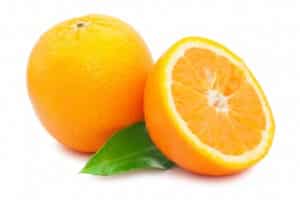 Home Sweet Home:
Home Sweet Home:
Home remedies have recently gained popularity. Do-It-Yourself (DIY) cleaner recipes are seemingly everywhere, most of them boasting a healthy amount of vinegar, ammonia, bleach, borax or baking soda. Throw in your choice of oil and poof you have a natural cleaner. Then again, the “poof” may actually be the result of that vinegar and baking soda mixture, so make sure you read the directions closely.
DIY Citrus Vinegar Cleaner:
Nothing says clean like vinegar…except maybe citrus infused vinegar. All you need is some white vinegar, those leftover orange peels and a glass jar. Unfortunately, the instructions for making your citrus vinegar cleaner are somewhat confusing when it comes to the steeping process. It’s hard to know for certain whether the jar needs to stay on your shelf for only a few days, 2 weeks or 2-3 weeks. Does it really matter? I mean, it’s a natural cleaner. Everything in the jar is literally edible. Yes, it matters.
Perspective:
Few would argue with the assertion that it is wise to avoid any chemical which lists the following as the First Aid Procedure for Inhalation:
Immediately remove from exposure area to fresh air. Keep affected person warm and at rest. Treat symptomatically and supportively. Contact physician or local poison control center. If breathing has stopped, give artificial respiration, and get medical attention immediately.
These kinds of dangers are the very reason for the DIY movement. Who wants to use anything that is harmful to the point of requiring aid from poison control? Instead of buying these hazardous chemicals, therefore, let’s mix up a natural soap scum remover that is easily made using 2 parts baking soda, 1 part salt, and 1 part borax. Unfortunately, this option gets us right back to poison control because the First Aid procedure listed above is taken from the Material Safety Data Sheet for borax.
When is a chemical not a chemical? Answer: When the chemical is labeled a DIY cleaner.
Vinegar vs. Water:
Vinegar is recommended by numerous DIY websites for cleaning everything from toilet bowls to windows to floors. Some will even claim it can be used as a disinfectant. Science claims otherwise. When it comes to soil removal, vinegar is less than effective; to the point you are better off using plain water. As for the disinfectant claims, vinegar contains Acetic acid which will have an affect on certain viruses, but it is not recognized by either the Environmental Protection Agency (EPA) or Health Canada as a disinfectant because of its low kill claims. It may smell good but, ultimately, vinegar as a cleaner is a poor choice. On the other hand, the acidic qualities of vinegar will react with the alkali deposits in your bathroom to create a neutral surface…it just won’t remove any of the soil.
Citrus Cleaner:
Instead of establishing that chemistry laboratory in your kitchen, and accidentally producing chlorine gas because you mixed vinegar and bleach, why not use a natural cleaner developed by certified chemists instead of the dreaded “chemical”? How about using a citrus cleaner? (That does sound better than saying citrus chemical.) Think of it as a DIY solution without the DIY.
Additional Reading:
D-Limonene: Help for Digestion, Metabolism, Detoxification, Anxiety & Breast Cancer Prevention.





